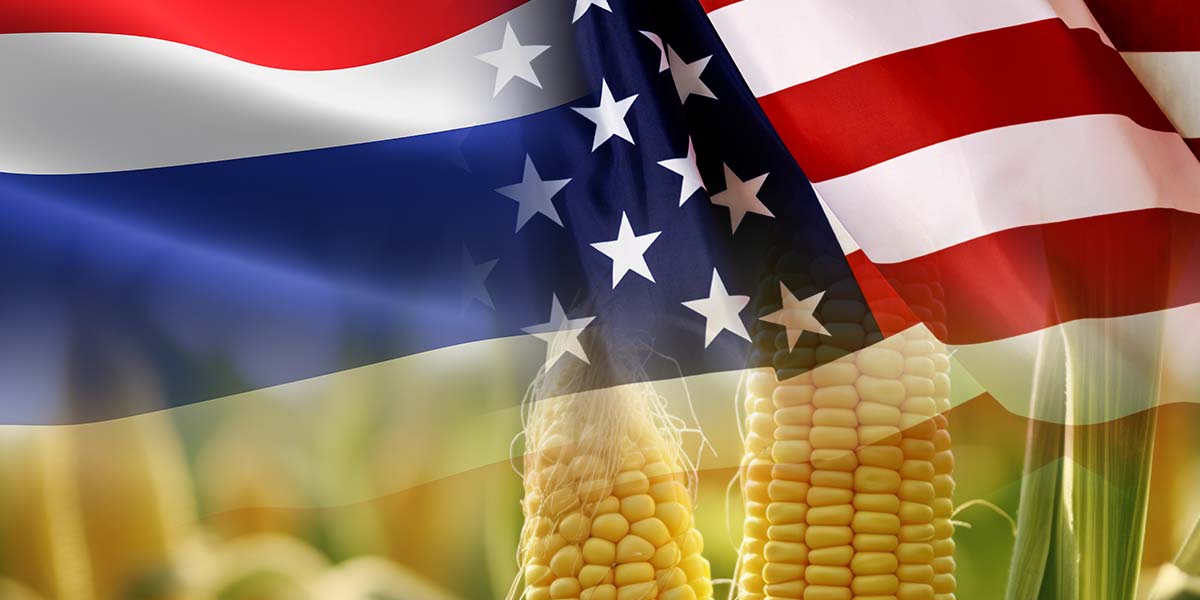Thailand’s feed industry is planning to shift its suppliers of agricultural commodities to the United State with around $2.8 billion worth of purchases, aiming to reduce its $35 billion trade surplus and stave off potential tariffs on Thai exports.
President of the Thai Feed Mill Association, Pornsil Patchrintanakul, told a reporter that this shift is contingent on easing import regulations to make US products like soybean meal and corn more appealing in comparison to other suppliers.
However, Thailand is not alone in addressing its trade imbalances with the US, as several nations, including India and South Korea, are also mulling over increased imports of US energy. This scramble for appeasement comes amid President Donald Trump’s tariff threats aimed at reshaping US trade relations. Meanwhile, Thailand has already committed to purchasing more US ethane for the same reason.
To incentivize Thai feed mills to prefer American over Brazilian soybean meal, Pornsil suggests that reducing or removing a 2% import tax could be negotiated in a trade deal. Additionally, a temporary waiver of WTO-required tariffs on corn would make US imports, the world leading corn producer and exporter, more attractive.
Pornsil stated that Thailand is eager to increase its commodities purchases, but these barriers would need to be addressed first, then the kingdom’s priorities will be shifted toward the U.S. He also emphasized that importing American corps is a quick and most efficient tactic for lowering its trade surplus.
According to the association’s data, Thai feed mills have the capacity to acquire up to THB 48 billion ($1.4 billion) in soybean meal, THB 36 billion in corn, and THB 9.9 billion in ethanol by-products from the US annually. However, current imports remain modest with $68.2 million purchases and no American corn import.
Thailand anticipates an increase in feed demand, reaching 21.8 million tons this year, with a substantial 60% of its mix dominated by imported corn, soybean meal, and wheat. The country primarily utilizes these feeds for chickens and pigs within its expansive livestock sector.
Currently, Brazil accounts for nearly all Thai soybean meal imports, while domestic and regional sources provide corn, with wheat coming from Europe. However, potential exists for Thailand to pivot towards purchasing 3 million tons of soybean meal and 4 million tons of corn from the US.
Moreover, Thailand imports different quantities of distillers’ dried grains annually, predominantly from the US. The association suggests that reducing a 9% import tax on this ethanol by-product may enable Thai mills to import up to 900,000 tons yearly.
Pornsil also cautioned that the US may press Thailand on market access for its pork products, a contentious matter previously leading to the revocation of $817 million in trade benefits in 2020. Currently, US pork imports remain barred in Thailand due to prohibitive local laws against feed additives common in American livestock agriculture.





